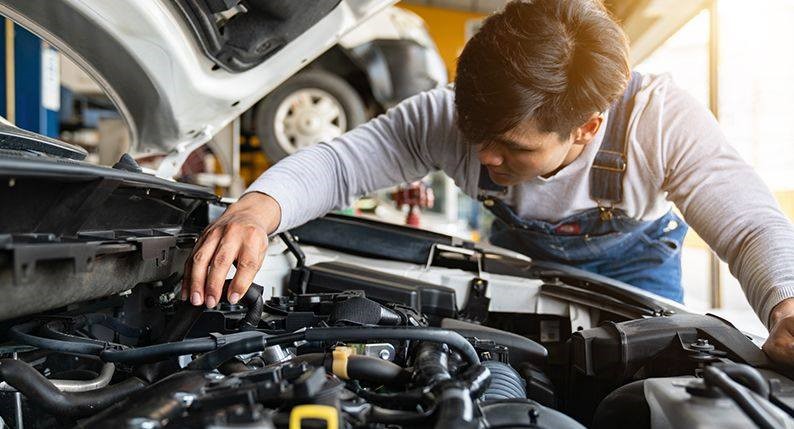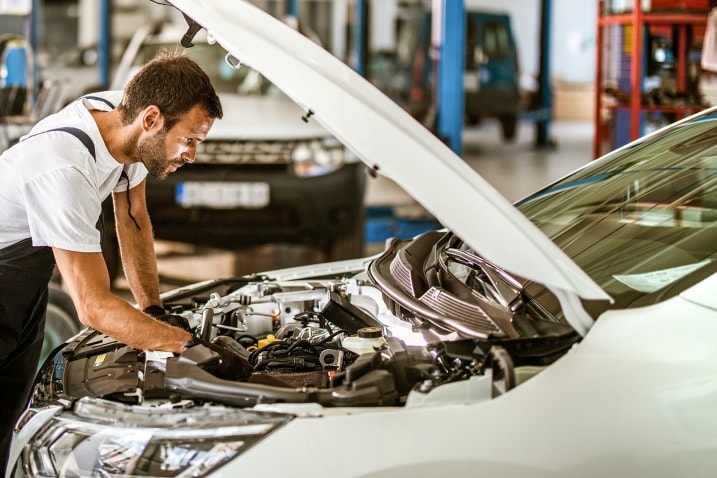All Categories
Featured
When your vehicle gets too hot, it can seem like a major emergency, but staying calm and adhering to the appropriate steps can protect against severe engine damages and help obtain you back on the road securely. In this post, we'll explore what to do if your car overheats and provide preventative tips to minimize the danger of overheating in the future.
If Your Cars and truck Overheats,What to Do. If your auto starts to get too hot is to pull over to a safe place as soon as possible, draw Over to a Safe Place The initial and most crucial action. Switch on your danger lights and direct your car to the shoulder or into a car park lot. Keeping your auto running while it's overheated can trigger extreme damage to the engine, so it's vital to close the engine off right now.
Allow the Engine Cool Down Once you've securely stopped, enable the engine to cool. You must never try to open up the radiator cap while the engine is still hot, as the launch of steam or hot coolant can trigger burns. Wait at the very least 15-20 minutes to permit the engine temperature to drop to a much safer level before continuing.
![]()
Check the Coolant Degree After the engine has cooled down, check the coolant levels by checking the reservoir or radiator. If it's low, top it off with a mix of coolant and water (as defined by your lorry's manufacturer) Always utilize care when opening the coolant tank, as pressure might have accumulated.
Try To Find Visible Leaks While you await the engine to cool, aesthetically check the radiator, pipes, and coolant reservoir for any type of visible leakages or splits. A dripping radiator or tube is a typical root cause of getting too hot. It's far better to call a tow solution than danger driving further and causing extra damages. if you find a significant leak.
Reboot the Engine After enabling the engine to cool and ensuring the coolant is rounded off, begin the engine and monitor the temperature level scale. If the temperature level continues to climb swiftly, it's finest to shut the engine off and ask for roadside support or a tow to the local technician.
![]()
Exactly How to stop Overheating in the Future. Routinely Inspect Coolant Degrees One of the most convenient ways to avoid getting too hot is by keeping the right level of coolant. With time, coolant can evaporate, so routinely examine the coolant degrees in the tank. Low coolant degrees can create the engine to overheat rapidly, so leading it off as needed.
Check the Radiator The radiator plays a vital function in keeping the engine cool. Periodically inspect the radiator for any type of blockages, dirt, or debris that can obstruct air movement. If you see any indicators of damages, such as corrosion or leaks, have it repaired or changed immediately.
The thermostat regulates the flow of coolant, while the water pump circulates it through the engine. If either part is defective, it can prevent correct air conditioning.
Flush the Cooling System Over time, coolant can break down and end up being ineffective, triggering an accumulation of debris in the system. Flushing the cooling system every 30,000 miles, or as recommended in your car's guidebook, helps to get rid of any sludge or accumulation and ensures the cooling system is functioning correctly.
Display the Condition of the Hose pipes The hose pipes in your lorry's air conditioning system can put on out or crack in time. Evaluate the hose pipes for any type of indications of wear, such as protruding, cracks, or leaks, and change them if required. Protecting against coolant leakages can go a long way in preventing getting too hot.
![]()
Drive Sensibly Aggressive driving, such as increasing swiftly or driving at broadband, puts additional pressure on your engine and its cooling system. Try to drive at moderate rates, particularly on hot days or when driving on high inclines, to lower the chances of getting too hot.
Stay Clear Of Straining Your Vehicle Carrying excessive weight in your automobile places anxiety on the engine and air conditioning system. Constantly bear in mind your car's weight limit, specifically if you're carrying heavy loads, lugging a trailer, or driving fars away in hot climate.
Final thought. An overheating auto can be a frightening experience, but recognizing how to respond and prevent it can save you time, money, and prospective engine damage. Constantly examine your coolant degrees, check key components like the radiator, thermostat, and hose pipes, and comply with a regular maintenance schedule. By remaining on top of your lorry's air conditioning system, you can reduce the threat of getting too hot and take pleasure in a smoother, safer driving experience.
If Your Cars and truck Overheats,What to Do. If your auto starts to get too hot is to pull over to a safe place as soon as possible, draw Over to a Safe Place The initial and most crucial action. Switch on your danger lights and direct your car to the shoulder or into a car park lot. Keeping your auto running while it's overheated can trigger extreme damage to the engine, so it's vital to close the engine off right now.
Allow the Engine Cool Down Once you've securely stopped, enable the engine to cool. You must never try to open up the radiator cap while the engine is still hot, as the launch of steam or hot coolant can trigger burns. Wait at the very least 15-20 minutes to permit the engine temperature to drop to a much safer level before continuing.

Check the Coolant Degree After the engine has cooled down, check the coolant levels by checking the reservoir or radiator. If it's low, top it off with a mix of coolant and water (as defined by your lorry's manufacturer) Always utilize care when opening the coolant tank, as pressure might have accumulated.
Try To Find Visible Leaks While you await the engine to cool, aesthetically check the radiator, pipes, and coolant reservoir for any type of visible leakages or splits. A dripping radiator or tube is a typical root cause of getting too hot. It's far better to call a tow solution than danger driving further and causing extra damages. if you find a significant leak.
Reboot the Engine After enabling the engine to cool and ensuring the coolant is rounded off, begin the engine and monitor the temperature level scale. If the temperature level continues to climb swiftly, it's finest to shut the engine off and ask for roadside support or a tow to the local technician.

Exactly How to stop Overheating in the Future. Routinely Inspect Coolant Degrees One of the most convenient ways to avoid getting too hot is by keeping the right level of coolant. With time, coolant can evaporate, so routinely examine the coolant degrees in the tank. Low coolant degrees can create the engine to overheat rapidly, so leading it off as needed.
Check the Radiator The radiator plays a vital function in keeping the engine cool. Periodically inspect the radiator for any type of blockages, dirt, or debris that can obstruct air movement. If you see any indicators of damages, such as corrosion or leaks, have it repaired or changed immediately.
The thermostat regulates the flow of coolant, while the water pump circulates it through the engine. If either part is defective, it can prevent correct air conditioning.
Flush the Cooling System Over time, coolant can break down and end up being ineffective, triggering an accumulation of debris in the system. Flushing the cooling system every 30,000 miles, or as recommended in your car's guidebook, helps to get rid of any sludge or accumulation and ensures the cooling system is functioning correctly.
Display the Condition of the Hose pipes The hose pipes in your lorry's air conditioning system can put on out or crack in time. Evaluate the hose pipes for any type of indications of wear, such as protruding, cracks, or leaks, and change them if required. Protecting against coolant leakages can go a long way in preventing getting too hot.

Drive Sensibly Aggressive driving, such as increasing swiftly or driving at broadband, puts additional pressure on your engine and its cooling system. Try to drive at moderate rates, particularly on hot days or when driving on high inclines, to lower the chances of getting too hot.
Stay Clear Of Straining Your Vehicle Carrying excessive weight in your automobile places anxiety on the engine and air conditioning system. Constantly bear in mind your car's weight limit, specifically if you're carrying heavy loads, lugging a trailer, or driving fars away in hot climate.
Final thought. An overheating auto can be a frightening experience, but recognizing how to respond and prevent it can save you time, money, and prospective engine damage. Constantly examine your coolant degrees, check key components like the radiator, thermostat, and hose pipes, and comply with a regular maintenance schedule. By remaining on top of your lorry's air conditioning system, you can reduce the threat of getting too hot and take pleasure in a smoother, safer driving experience.
Latest Posts
Financial Protection for each Stage of Life
Published Apr 19, 25
1 min read
Teenager Freedom Account: A Smart Begin to Financial Freedom
Published Apr 19, 25
1 min read
Relish the Best: Leading 5 Dishes & Drinks at Yesterday's Creekside Tavern
Published Apr 19, 25
2 min read